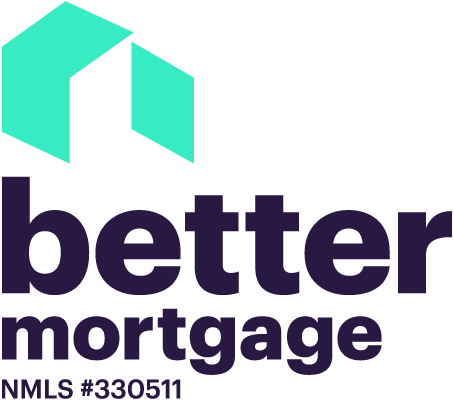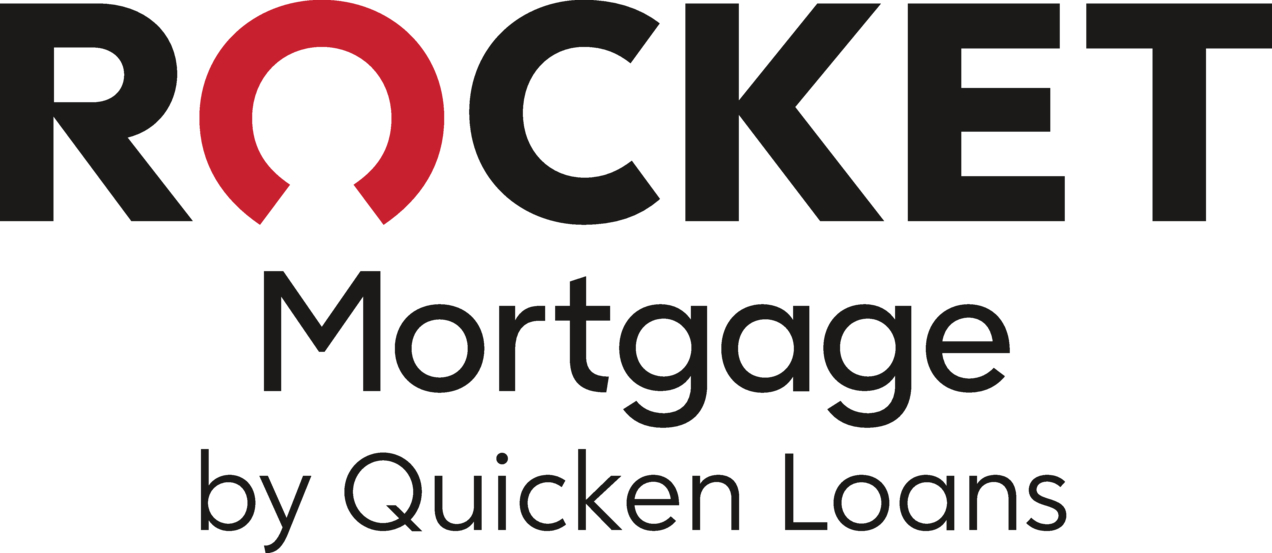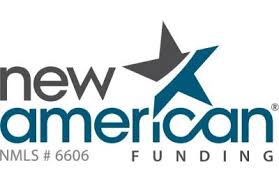Owning a piece of property that’s entirely yours is part of the American Dream. But for many people, their mortgage will be the most debt they ever take on, and it’ll take the longest to pay off. Giving someone a home loan is a big risk for lenders, so they’re careful about who they lend to.
That can make people with bad credit think buying a home is impossible, but it’s not. Even with bankruptcy or foreclosure on your record, you have options. This guide will explain how to buy a house if you have bad credit.
Table of Contents
Can you buy a house with bad credit?
When you have poor credit, you’ll generally find it more difficult to be approved for any loan, especially a mortgage.
Lenders usually determine your creditworthiness based on your credit report, which shows money you’ve borrowed in the past, your payment history, and your credit score, which quantifies how responsible you are as a borrower. Most scoring models range between 300 and 850.
A lower credit score can indicate greater risk in a loan candidate, but it doesn’t necessarily mean you’ll be an irresponsible borrower. Some people have poor credit scores because they incurred too much credit card debt. But others have bad credit after filing for bankruptcy as a result of medical debt.
Some lenders use manual underwriting and alternative indicators to determine your creditworthiness, which may make it easier to get approved. But in most cases, your creditworthiness is judged based on your credit history.
How to buy a house with bad credit
To improve your chances of buying a house with bad credit, look for more lenient lenders that use alternative methods for evaluating borrowers. Smaller local lenders and credit unions are more likely to deviate from traditional underwriting methods to determine if you qualify.
You can also take steps to make yourself more attractive to a lender. Here are five ways to improve the likelihood you’ll qualify for a mortgage:
- Start improving your credit now
- Plan for a larger down payment
- Consider finding a cosigner
- See whether you qualify for a first-time home buyer program
- Look for mortgage lenders that perform manual underwriting
1. Start improving your credit now
Start working on your improving your credit score as soon as you decide to buy a house. You can get your credit report for free online, including official reports from each of the major credit bureaus: Equifax, Experian, and TransUnion.
Here are a few things you can do to improve your score:
- Pay your bills on time. The most important factor of your credit score is your payment history. The simplest and most impactful way to improve your credit is to pay your bills and debt payments in full and on time. If you’re able, you can make this easier by signing up for automatic payments.
- Avoid taking out new credit. Each new loan or credit card account drags down your average credit age, and each application puts a new hard inquiry on your credit report.
- Use less of your credit. If you have a credit card or line of credit, keep your utilization percentage below 30%. Credit utilization shows how much credit you use compared to how much is available to you. If you have a card with a credit limit of $5,000, for example, avoid carrying a balance of more than $1,500 on it.
2. Plan for a larger down payment
One way to reduce a lender’s risk is to make a larger down payment, which reduces the size of your mortgage loan. Minimum down payments vary by loan type and lender.
Putting down more than the minimum required amount can make up for a low credit score or spotty credit report. Ask a loan officer how much you should put down based on your credit score. They may suggest 10% to 20% of the home’s purchase price, or more.
3. Consider finding a cosigner
A cosigner can make qualifying for a mortgage much easier. A cosigner is a person who agrees to take financial responsibility for the mortgage if you default or can no longer make payments. They need to have good credit to be a suitable candidate.
Asking someone to act as cosigner is no small favor. The loan and your payment activity affect their credit report as well as yours. This is why cosigners tend to be someone close to the borrower, such as a parent or romantic partner.
4. See whether you qualify for a first-time home buyer program
There are several federal and state-based first-time home buyer programs that make it easier to qualify for a mortgage or help with your down payment. Each has its own eligibility criteria.
FHA loans
FHA loans are home loans from private lenders insured by the U.S. Federal Housing Administration. These are designed for people who have poor credit or who can’t afford a large down payment.
Consumers who don’t qualify for a conventional loan may be eligible for an FHA loan. Depending on the FHA lender, you could get an FHA loan with a minimum credit score requirement of 580 and a 3.5% down payment, or a credit score as low as 500 to 579 with a 10% down payment.
FHA mortgages come with a mortgage insurance premium (MIP) of 1.75% upfront and up to 1.05% on top of the monthly payment. This is similar to but possibly more than the private mortgage insurance (PMI) borrowers with conventional loans pay if they put down less than 20%.
Other government-backed loans
You can also find mortgages backed by the U.S. Department of Veterans Affairs (VA loans) and the U.S. Department of Agriculture (USDA loans). These generally come with no down payment and no mortgage insurance.
VA loans are for veterans, servicemembers, and surviving spouses; and USDA loans are for purchasing property in qualifying rural parts of the country.
A word of warning
Once you buy a house, you’re responsible for any repairs and maintenance the home needs. Older homes may have more problems than newer homes, but all homeowners should be prepared to spend about 1% of the home’s cost annually for maintenance.
Some mortgages, including FHA and VA loans, include the option to tack on the costs of home renovation to the total mortgage loan. But this should only be done if you’re prepared to make those renovations and keep up with the mortgage costs.
5. Look for mortgage lenders that perform manual underwriting
Mortgage underwriting is the process that determines a potential borrower’s loan candidacy. Many lenders use automatic underwriting with software that uses data such as your income and credit history to determine creditworthiness.
Borrowers with poor credit should look for lenders that use manual underwriting, where a loan officer goes through your documents manually to decide whether to approve the loan. They may be able to approve a loan even if you have a recent foreclosure or eviction on your record.
Manual underwriting usually takes more time than automatic underwriting, but it allows a lender to determine your creditworthiness on your broader financial situation, like proof that you pay utility bills on time or that you have a sizable emergency fund.
Where to find bad credit home loans
If you’re struggling to find mortgage loans with big national banks, try your local bank or credit union.
Smaller credit unions may be more willing to accept a borrower who doesn’t have a pristine credit report. You have to be a member of a credit union to apply for a loan, but it’s usually not hard to join.
Local banks may also be more willing to do manual underwriting for candidates with bad credit.
3 FHA mortgage lenders with home loans for bad credit
Better
- States available: 39
- Loan terms: 15, 20, or 30 years
- Minimum down payment: 5%
Better is an excellent choice for homebuyers with bad credit due to its transparent, no-fee structure and efficient online platform. The lender is known for eliminating origination fees, application fees, and other hidden costs, which can be particularly beneficial for those with financial challenges.
Better Mortgage’s digital-first approach simplifies the mortgage application process, providing a quick and hassle-free experience for borrowers. The platform offers real-time rate quotes and a straightforward pre-approval process, helping applicants with bad credit understand their borrowing potential and make informed decisions.
Better Mortgage offers competitive rates and flexible loan options, even for those with less-than-ideal credit scores. Its focus on customer education and support ensures that potential homeowners receive the guidance they need to navigate the mortgage process successfully.
This combination of cost transparency, ease of use, and supportive services makes Better Mortgage a strong contender for those looking to buy a house with bad credit.
Rocket Mortgage
- States available: 50
- Loan terms: Not disclosed
- Minimum down payment: 3.5%
We chose Rocket Mortgage as a top option for buying a house with bad credit due to its streamlined application process and flexible lending criteria. Rocket Mortgage offers a user-friendly platform that simplifies the mortgage process, making it accessible even for those with less-than-perfect credit.
Its innovative online tools and resources help potential homeowners understand their options and find the best loan products tailored to their financial situation.
Additionally, Rocket Mortgage stands out for its competitive interest rates and various loan programs designed to accommodate borrowers with bad credit. It provides personalized loan options and dedicated support to guide applicants through the mortgage process.
This commitment to customer service and flexibility makes Rocket Mortgage an excellent choice for individuals looking to navigate the complexities of home buying with bad credit.
New American Funding
- States available: 48 (Not available in Iowa and New York)
- Loan terms: 15 or 30 years
- Minimum down payment: 3.5%
New American Funding stands out for its personalized lending solutions and commitment to helping borrowers with bad credit achieve homeownership. The lender offers a variety of loan programs, including FHA, VA, and conventional loans, which can be tailored to meet the needs of individuals with lower credit scores.
New American Funding’s emphasis on manual underwriting allows for a more comprehensive assessment of an applicant’s financial situation, increasing the chances of loan approval for those with credit challenges.
In addition, New American Funding provides exceptional customer service and educational resources, ensuring borrowers understand the mortgage process and their options. Its focus on building strong relationships with clients and offering tailored advice makes them a reliable choice for those navigating the complexities of buying a home with bad credit.
This personalized approach, combined with a wide range of loan products and competitive rates, makes New American Funding a top pick for prospective homeowners looking to overcome credit obstacles.
Frequently asked questions about bad credit mortgages
What are the risks of getting a bad credit home loan?
When you take out a home loan with bad credit, you may end up paying a higher interest rate or more fees than if you used a conventional loan or had a higher credit score. This depends on which loan program you use. If you improve your credit score later on, you may be able to refinance the mortgage to get a lower rate or pay fewer fees.
The biggest risk with any home loan is borrowing more than you can comfortably afford. If you can’t make monthly payments, you may end up defaulting and face foreclosure. This will hurt your score even more, making it that much harder to get another mortgage.
Before taking out a mortgage, evaluate your finances, savings, and job security. Keep the new mortgage payment low if you’re worried about cash flow.
Could taking out a mortgage with bad credit improve my credit score?
If you have bad credit, simply taking out a mortgage will improve your credit mix and could give a small bump to your score in the short term.
If you make all your mortgage payments on time, your credit score can increase more significantly in the long term.
This is a gradual process and can take a long time, depending on how bad your credit is. For example, if you have several defaulted loans on your credit report, it can take years to repair the damage.
If your credit score improves significantly, consider refinancing the mortgage to get a lower interest rate and eliminate fees like mortgage insurance.
Can I get a mortgage if I have a bankruptcy or foreclosure in my past
It’s still possible to qualify for a mortgage with a bankruptcy or foreclosure on your credit report, but it will depend on how recent it was. Negative events are weighted differently in your credit score, and the amount of time lapsed plays a role in that.
A more recent bankruptcy or foreclosure will have a bigger impact on a credit score than an older one. If it happened within the last two to four years, you may not be able to get a mortgage. Ask your lender before applying.
About our contributors
-
 Written by Zina Kumok
Written by Zina KumokZina Kumok is a personal finance writer dedicated to explaining complex financial topics so real people can understand them. As a former newspaper reporter, she has covered everything from murder trials to the Final Four.
-
 Edited by Amanda Hankel
Edited by Amanda HankelAmanda Hankel is a managing editor at LendEDU. She has more than seven years of experience covering various finance-related topics and has worked for more than 15 years overall in writing, editing, and publishing.


